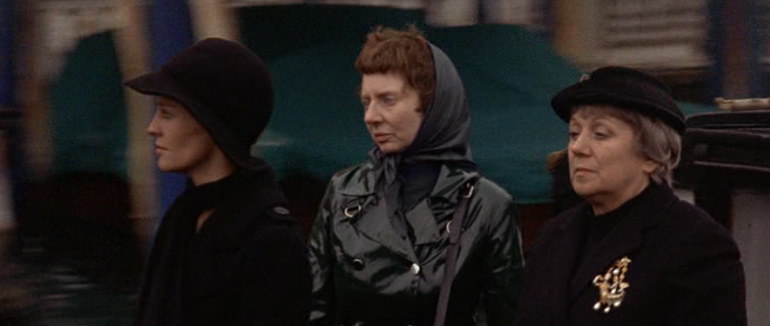Daily Office
Grand Hours
April 2011: First Week
Saturday, April 9th, 2011
¶ At the LRB, David Runciman reviews two books about politics and finance and, in the process, speaks truth to sloth. The gravest problem of democracy is that the majority of citizens refuses to shoulder its burdens. In exchange for mandatory tax collection, the people reserve the right not to learn what’s really going on in public affairs.
Hacker and Pierson recognise that it has become bad manners to point this out even in serious political discourse. But it remains the truth. ‘Most citizens pay very little attention to politics, and it shows. To call their knowledge of even the most elementary facts about the political system shaky would be generous.’ The traditional solution to this problem was to supplement the ignorance of the voters with guidance from experts, who would reform the system in the voters’ best interests. The difficulty is that the more the experts take charge, the less incentive there is for the voters to inform themselves about what’s going on. This is what Hacker and Pierson call the catch-22 of democratic politics: in order to combat what’s taking place under the voters’ radar it’s necessary to continue the fight under the voters’ radar.
¶ Buzz Poole gives The History of American Graffiti such an enthusiastic review that we wonder how this vibrant art form — but an art form much closer to writing and to architecture than it is to the visual art that hangs on the wall of a museum — might be detached from its associations with vandalism. (We never knew — or perhaps we forgot — about tagging cross-country freight trains) The review extracts commentary attesting to the positive impact that graffiti had on erasing racial barriers among the writers. (The Millions) ¶ What’s all this about information overload? At HTMLGiant, M Kitchell complains about being unable to find ANYTHING on the Internet about a fave filmmaker, Frans Zwartjes.
¶ At Triple Crisis, Mark Blyth offers an interesting essay about the dangers of “intellectual capture” and the “consensus” that the financialization of the American economy is a good thing. (via 3 Quarks Daily) ¶ All about Coudal Partners, the makers of Field Notes, and how they got into the business of working for themselves. Timing is everything: in 2001, who knew where the Internet was going? (Signal vs Noise; via The Morning News) ¶ Robert Cringely considers the Engadget defections in light of Thorstein Veblen, noting, “When it comes to information there is no such things as conspicuous consumption and none of us are ever information-rich enough.” (That’s one way of looking at information overload.) ¶ Felix Salmon ponders the Larry Gagosian effect. Is the famous dealer the film on the bubble?
In the short term, that’s good for the contemporary art market: Larry simply won’t allow it to collapse, so it won’t. But in the longer term, as we all know, the longer that bubbles inflate, the nastier their bursting turns out to be.
Felix also surmises that Mr Gagosian is as rich as many of his clients.
¶ Jonah Lehrer writes about how tests fail. They don’t last long enough, would be one way of putting it. (Wired Science) ¶ If you’re still wondering about James Gleick’s The Information, Richard Wirick’s quick but resonant review, at The Second Pass, may be the one that gets you to read it.
¶ At Slate Bill James asks why America is so much better at nurturing great athletes than great writers. When the silt finally settled, we were left with the feeling that when a sportswriter decides to talk about Shakespeare, he gets to say any old thing. (via MetaFilter)
We don’t genuÂinely need more literary geniuses. One can only read so many books in a lifetime. We need new athletes all the time because we need new games every day—fudging just a little on the definition of the word need.
¶ If you’re not chuckling by the time Adam Robinson tells you the title of his forthcoming opus, you need a humor tuneup. We particularly liked the sentence in which Adam compares a writer whose books you cannot buy at Amazon (yet) to that Kilimanjaro guy.
¶ Tim Parks looks at some new books about the ongoing malaise of Italy, where everything is great in spite of itself, or vice versa; as always it’s his own observations as a thirty-year resident that bring the history to life. Here he makes the city-states that emerged in the later Middle Ages sound like teams competing in a league. (The New Yorker)
Venice, Florence, Milan, Naples, and Rome were aware that Italy might eventually be considered a territorial unit, and did everything they could to avoid being swallowed up in it: they were, as Graziano comments, “too weak to absorb others, too strong to let themselves be absorbed.â€
¶ At the Guardian, Seumas Milne applauds David Cameron’s acknowledgment that the British Empire left behind “many of the world’s problems.”
Of course, the colonial legacy is only one part of the story, and Britain’s is only one of the colonial empires whose baleful inheritance can be felt across the world. But the failure in modern Britain to recognise the empire for what it was – an avowedly racist despotism, built on ethnic cleansing and ruthless exploitation, which undeveloped vast areas and oversaw famines that killed tens of millions – is a dangerous encouragement to ignore its lessons and repeat its crimes in a modern form.
What’s needed are not so much apologies, still less declarations of guilt, but some measure of acknowledgement, reparation and understanding that invasions, occupations and external diktats imposed by force are a recipe not for international justice but continued conflict and violence, including against those who stand behind them.
¶ In this week’s must-read piece, Maria Bustillos goes through David Foster Wallace’s papers at the Ransom Center in Austin, and is surprised to find a comprehensive library of thoughtfully annotated self-help best-sellers, by the likes of John Bradshaw and Alice Miller. Reading of Wallace’s efforts to cut himself down to size, to live as if he weren’t the recipient of a “genius” grant, is heartbreaking and at the same time damning of America’s leveling tendencies. It were better to have taught him how to be great. (The Awl) ¶ John Jeremiah Sullivan reviews The Pale King at length, at GQ, praising the late writer as a failure in Faulkner’s sense (“our splendid failure to do the impossible”). but that comes at the end, after a great deal of immensely sympathetic comment.
He’s maybe the only notoriously “difficult” writer who almost never wrote a page that wasn’t enjoyable, or at least diverting, to read. Yet it was the theme of loneliness, a particular kind of postmodern, information-saturated loneliness, that, more than anything, drew crowds to his readings who looked in size and excitement level more like what you’d see at an in-store for a new band. Many of Wallace’s readers (this is apparent now that every single one of them has written an appreciation of him somewhere on the Internet) believed that he was speaking to them in his work—that he was one of the few people alive who could help them navigate a new spiritual wilderness, in which every possible source of consolation had been nullified.
¶ At The Millions, Rebecca Rego Barry writes about Nicholson Baker, libraries, and discards — heartbreaking, infuriating, and in this time of transition to new information technologies, inevitable. Just as more work is being done, in this age of digital photography, in the archaic techniques of Nadar, Fox Talbot and others, so it will be, we hope, with books, as more people value the information that can’t be digitized. Â
¶ We hope that readers will be encouraged by Stephen Dodson’s review to pick up a copy of Ward Farnsworth’s Classical English Rhetoric; we trust that the book will set their tongues and pens in flight. (The Millions)
¶ In “The Windsor Knot,” Jonathan Freedland tries to guess just how close the Firm is to barreling over the waterfall’s edge.
Figures from Visit Britain, the British tourism agency, showed that tourism to the country declined in the banner royal years—by 15 percent in July 1981, just as Charles and Diana were wed in picturebook fashion, and by 8 percent in July 1986 when Andrew married Sarah Ferguson. The more visible the Windsors were, the more foreign visitors chose to give Britain a wide berth.
¶ Felice Cohen makes her 90-square-foot apartment seem positively enviable. (via MetaFilter) ¶ Bureaucrats at work. (Brain Pickings) ¶ Jimmy Chen produces The Catcher in the Rye, starring Eminem. (HTMLGiant) ¶ How Venice Works. (via MetaFilter) ¶ Replaced Mona Lisa. (@ GOOD) ¶ Photographer Drew Kelly. (@ The Best Part)
¶ Tyler Cowen’s choices for The Great Gatsby‘s equal in successive decades: The Grapes of Wrath; Farewell, My Lovely &c. Ultra-strange but strangely interesting. (Marginal Revolution) ¶ Palytoxin, the world’s second-deadliest poison. You may have some in your aquarium! (Not Exactly Rocket Science) ¶ Twenty-five things about Terry Teachout. (About Last Night) ¶ William Gass: Five books that every critic ought to have on hand — nice work if you can get ’em! (Critical Mass)









